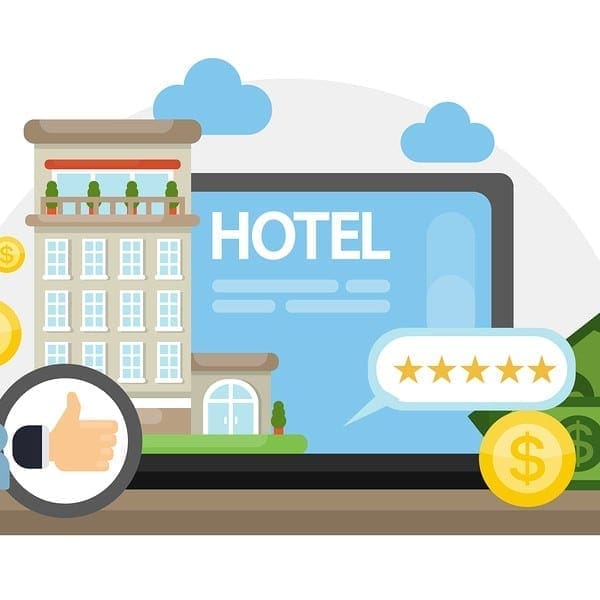 In the time where Revenue Management often proves critical, we have unfortunately diverted from managing revenue strategically, to offering rates lower than competition hotels. This quick-fix often helps us to get that last-minute business all parked with us. But evidently it is only that – a quick fix-a short-term practice which almost never converts into sustainable long-term results.
In the time where Revenue Management often proves critical, we have unfortunately diverted from managing revenue strategically, to offering rates lower than competition hotels. This quick-fix often helps us to get that last-minute business all parked with us. But evidently it is only that – a quick fix-a short-term practice which almost never converts into sustainable long-term results.
Moreover, it mostly results into rate-dilution and lower valuation of the property, along with other similar adversities, which makes it impossible for the property to recover in the market – leaving hotel owners and investors with no option but to relaunch the property.
Trends in the hotel industry depict the famous fable of ‘The Monkey and the Cats‘. The two cats in the story are busy fighting for a bigger share of food and the monkey takes advantage by exploiting the cats’ mistrust of each other. The moral being ‘when you quarrel, someone else gains.’
Think of hotels as the cats – constantly fighting for a bigger share of occupancy (and sometimes revenue) by lowering their rates. As the cats are fighting, benefit goes to the monkey – which could be any stakeholder of the industry, be it another hotel, travel agents or simply the guests. In the end, the hotels have either diluted their market rates or compensated the rates by additional services, which affect overall profits. In totality, this is never a wise practice if you want the property to yield its maximum potential without further investment or capital expenditure.
We need to realize that trends have changed over last few years with the advancing of technology. Nobody books a month prior for business travel due to the excessive supply of hotel rooms available. Moreover, in this fast-moving world, nobody knows how their next week is looking, much less planning a month in advance. After an extensive study of business markets like Delhi, Mumbai, Bangalore, Kolkata, Ahmedabad, and few leisure destinations like Jodhpur, Goa etc., we have come to a conclusion that lead time has decreased by leaps and bounds for both business and leisure travel.
What does Revenue Management mean to you? Do you find yourself checking what your competition is offering in terms of tariffs and adjust your own tariff accordingly? If yes, it might be the time to reconsider this practice.
Hoteliers will have to get over the fear of being behind the curve and dropping the rates in the last 48 to 72 hours, just to bump up occupancy. Unfortunately, when we drop rates at the final hour, our guests benefit, but we leave a lot of money on the table in this rates competition catfight. The problem at hand is such that if one hotel follows an alternative practice, they will end up being empty, hence, the solution is to end the competition. Hotel general managers need to maturely speak to each other to form a uniform code of conduct.
Today, in most business locations, corporate travellers are moving through OTAs as they are accostomed to getting better deals there. Why should we even contract them if all we had to simply do is put the lowest rate on out on our OTAs during our peak pickup lead time? Aren’t we diluting our corporate business on our own and then whining that corporates have stopped using us? Let’s stop and analyze- it might be the other way around.
-
Are we collecting business cards from every OTA and sending them emailers post departure to book direct next time and get a 10% off the bar and few more inclusions?
-
Hotel business is a daily leasing business and being too rustic or too compromising in it will ensure you leave a lot of money on table.
Jim Collins in his book ‘Good to Great’ said good is the greatest enemy of great and that’s what we here believe has happened to most of the branded space hotels. They have just accepted their fate with a good performance, never striving for great and thus leaving a lot of money on the table.
It is high time that as a fraternity, we come together and work as one entity to maintain the integrity of the industry instead of working in silos, which will eventually leave all of us in a decline. Healthy competition in the hotel industry should be on the basis of services offered rather than rates. After all, what sets a hotel business apart is the sense of hospitality that guests experience – the element that makes for long and sustainable guest loyalty and hence a sustainable hotel business.
As per seasonality, it is reasonable for hotels to lower room tariffs, but cutting tariffs just to attract last-minute occupancy is never appreciated. It, in turn, shows that the hotel team was not ready with a sturdy revenue management plan, thus leaving them to fight the fire once again at the last minute.

















